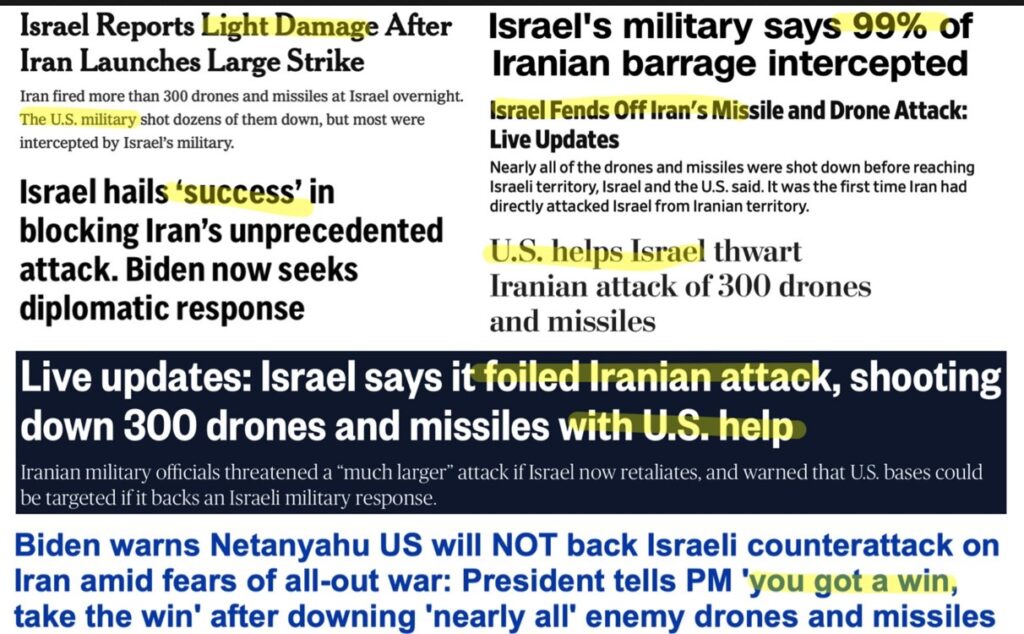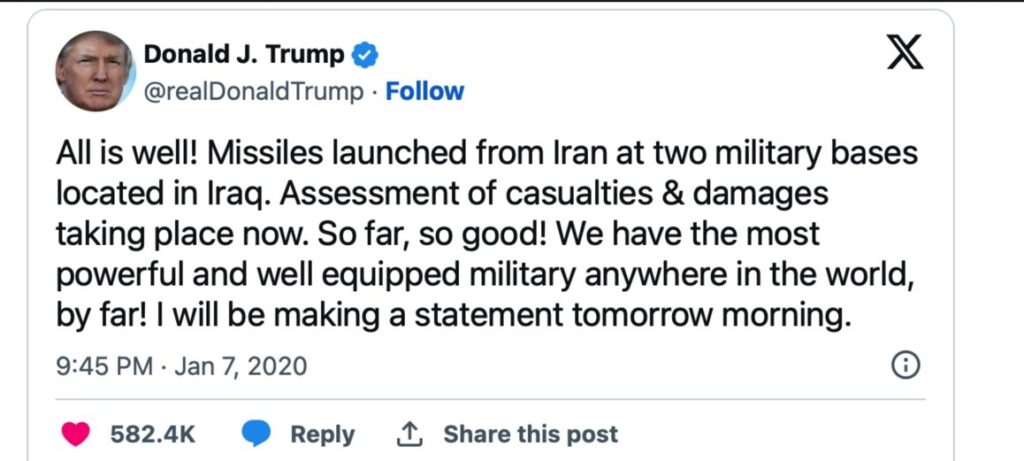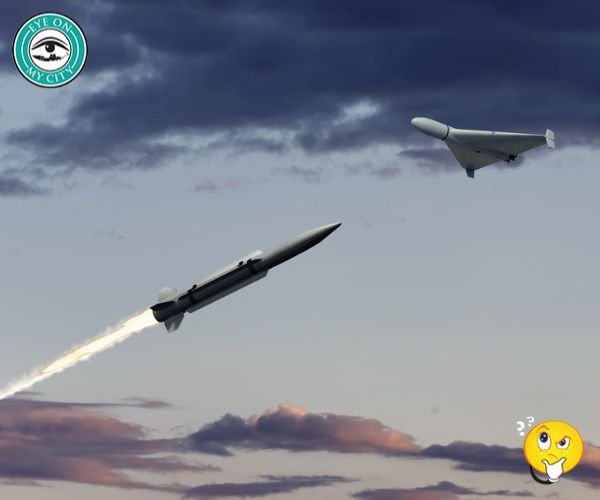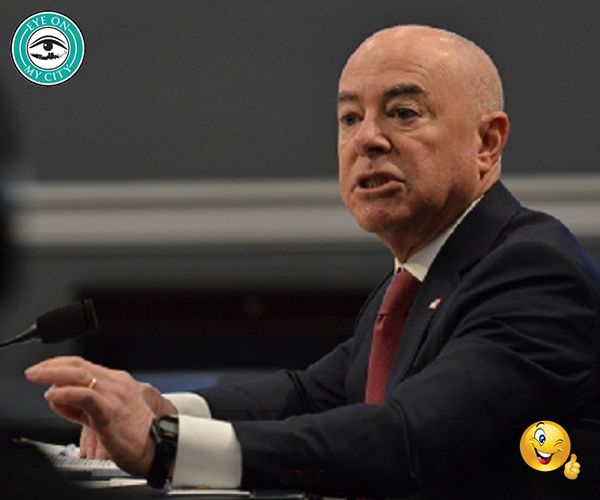Last night, following a week of escalating, overheated war rhetoric and pugnacious threats painfully excreted by bellicose Biden Administration officials, the Iranians dramatically popped the blister of international tension. Iran was politically forced to respond to Israel’s enigmatic April 1st missile strike on Iran’s diplomatic annex in Syria, which depopulated sixteen Iranians.

So late yesterday, Iran launched a harmless, slow-moving, unmanned drone swarm toward Israel. Over a period of about 8 hours, the swarm lazily floated toward Israel over Iraq like a noisy, buzzing cloud, giving Israeli, U.S., British, Jordanian, and French fighter jets ample “drone gallery” practice.
Then around seven o’clock, Israel’s Iron Dome air defenses shot down whatever was left of the swarm except for seven cruise missiles, which somehow got through, blowing an unoccupied military latrine in southern Israel to smithereens and vaporizing one very unlucky Negev desert cactus.
There were no Israeli deaths, no injuries, nor even any significant property damage. But the Iranians seem satisfied.
Russia Today’s top headline this morning reported Iran’s mullahs say it’s over: “‘Punishment’ of Israel completed, no intention to continue – Tehran.”
By contrast, the good doggies in Western corporate media rushed to publish an obvious government-approved boilerplate narrative — or else they all coincidentally ran variations on exactly the same headline, because why try to offer customers anything unique?

Corporate media’s rubberstamped narrative was that, with U.S. help, Israel fended off a 330-drone Iranian attack and — now that Iran officially says it’s over and Israel was unscathed — Biden, the great diplomat, called for peace, warning Israel to stand down, even though Israel is threatening to counter-retaliate due to the cost of its defense.
Some puzzling questions remain unanswered. First, no corporate media platform will ask why the Israelis started it by attacking Iran’s embassy. I’m sure Israel had a good reason for the provocative first strike, but what was it?
The media’s remarkable lack of curiosity about that singular fact is becoming a bigger story than the attack itself.
The second unanswered question is: “Why did the Iranians show so much restraint?”
They obviously didn’t even try to punch through Israel’s Iron Dome. Iran did the minimum that was necessary to save political face, and did that slowly and obviously enough that six countries could scramble jets and enjoy an exciting dogfighting afternoon, hours before the drones and slow-moving cruise missiles neared Israel.
Sometimes the pace of events these days leaves us feeling like we’re watching a show instead of news.
Several commenters strongly suspected that Iran had secretly coordinated with Israel in advance. It would not be unprecedented. In 2020, after Trump ordered the strike that killed Iranian General Soleimani, the story goes that the President negotiated with the Iranians, letting them fire a few missiles at pre-designated targets, which were just some evacuated Iraqi desert bases.
Then Trump announced it was over, and the Iranians seemed satisfied with a show of force that hurt no one:

All seems well now too. The good news is, in the likely event that Israel does in fact stand down, this warmaggedon crisis appears to be concluded. The world can de-escalate to the point analysts blandly call the status quo ante. If hardline neocons were hoping to provoke a wider Middle Eastern war, they were thwarted by surprising Iranian restraint.
Meanwhile the poor Ukrainians are even more despondent, since Israel is receiving all of Uncle Sam’s attention.











One response to “Slow-moving attack on Israel – what was that all about?”
Jeff, seems this article was part of that attack on Israel. Your comments reek of Monday morning quarterbacking. What would your response have been if Israel had suffered massive casualties? Recalling . . . more ordinance has fallen on Israel then on London at the hands of the Nazi’s in WWII, would you be supporting Israel if images akin to London on fire flooded the media? Second: US is pouring billions of dollars into the Ukraine. Nope, this oped crashed and burned just like one of those Iranian drones shot out of the sky by an Israeli jet.